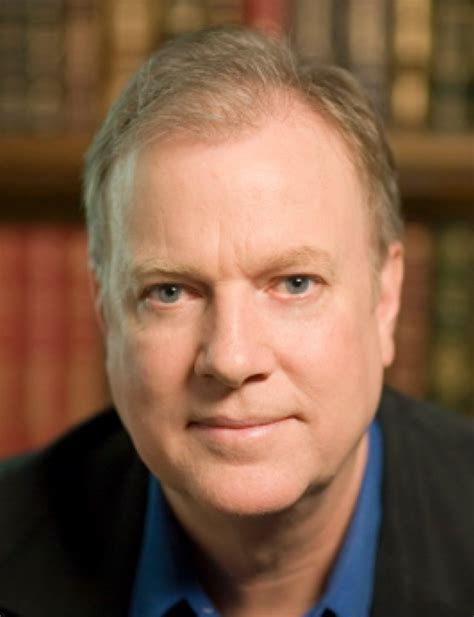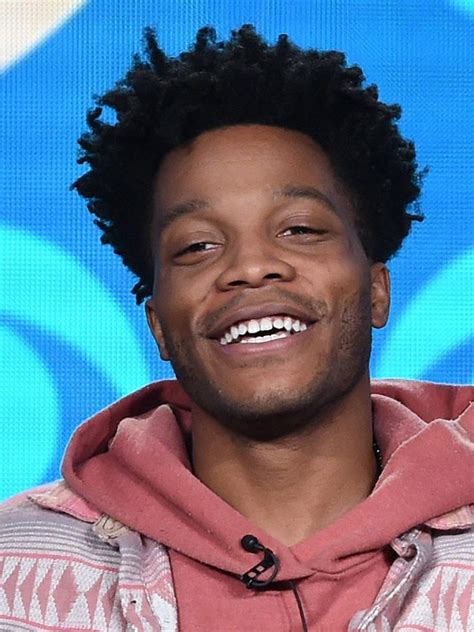A Quote by Patrick Ness
Your reader is interested in a guileless, fresh, first-time-we-talked-about-it way. What a great liberation that is. And teenagers, if you respect them, will follow you a lot further than adults will, without fear of being a genre that they may not like or have been told not to like. They just want a story.
Related Quotes
Characters who are absolutely sure about what they do, who plunge ahead without fear, are not that interesting. We don’t go through life that way. In reality, we have doubts just like everyone else.
Bringing your Lead’s doubts to the surface in your plot pulls the reader deeper into the story, and this is an excellent way to coax the reader to lose himself in the story world you’re about to create.
You've got to be a good reader. So whatever genre that you're interested in, read a lot of books about it and it's better than any kind of writing class you'll ever take. You will absorb techniques and then in a lot of cases you can just start writing using the style of the book or the author that you admire and then your own style will emerge out of that. Be a diligent reader and then try to write seriously, professionally and approach everything in writing in a professional way.
A lot of people are scared. It's the way you're raised. The way you've been told your whole life, that you've got to do this and that. Get a job, go to school. So, a lot of people are scared to just do what they really want. They're worried about what people will think and stuff like that. It's just fear.
I sat down with CBS, and we talked about me developing a show for them. At the time, I was meeting with a lot of networks. And I told them, 'I don't want to be acting on your show as the token black guy. I want to do something that will change a network and will change the way people view African-Americans on TV.'
I think the reason that a lot of people have to have a lot of people around is just about being smart and knowing what you want to talk about. I want people to know who I am. Respect is a huge thing - especially in my family. ... If you don't respect people, people aren't going to respect you back. It's just about yourself, you respecting others, and hopefully everyone else will follow that and respect you, as well.
I have three boys. And I wanted to make sure it connected with them and then those guys who grew up like me, in environments like me.And then I knew something about science that your New York Times reader would be interested in. So I was thinking about it in multiple ways: I'll connect with the people who grew up like me first, and then the New York Times reader will be interested in the science because it's so good and they want to be "in the know."
Teenagers watch and listen to all kinds of things. It is the nature of being a teenager to seek out intense stuff. Stuff about death and sex and love and fear. Teenagers are the bravest, most curious, most philosophical, most open-minded readers there are, which is why so many less-than-young adults like writing for them.
Write what you want to read. So many people think they need to write a particular kind of book, or imitate a successful style, in order to be published. I've known people who felt they had to model their book on existing blockbusters, or write in a genre that's supposed to be "hot right now" in order to get agents and publishers interested. But if you're writing in a genre you don't like, or modeling yourself on a book you don't respect, it'll show through. You're your first, most important reader, so write the book that reader really wants to read.
The story he [Todd Willingham] told me was this: He woke up to a fire. He ran out of the house and couldn't run back in to save his children, and that was enough to get me interested. ... There's a writer in me that's like, ... this is a great story. ... I have a good friend, who was my neighbor at the time, and I told her about it. ... She had been a reporter, and she was like, "Let's go investigate it."
As I see it, a successful story of any kind should be almost like hypnosis: You fascinate the reader with your first sentence, draw them in further with your second sentence and have them in a mild trance by the third. Then, being careful not to wake them, you carry them away up the back alley of your narrative and when they are hopelessly lost within the story, having surrendered themselves to it, you do them terrible violence with a softball bag and then lead them whimpering to the exit on the last page. Believe me, they'll thank you for it.
We underestimate teenagers at our peril. Even the dismissive thing out on the street--look at what they're wearing. Then we'll hear stories about how a toddler fell on the tracks, and it's often a teenager who comes to the rescue and walks away because he or she doesn't want any credit. I recognize it because I've written books for teenagers--it's basically that they feel things more than adults do. They want things more than you think. They want things with greater depth than you think they do. Teenagers have got a lot of soul that adults have forgotten they have within themselves.
To rescue our children we will have to let them save us from the power we embody: we will have to trust the very difference that they forever personify. And we will have to allow them the choice, without fear of death: that they may come and do likewise or that they may come and that we will follow them, that a little child will lead us back to the child we will always be, vulnerable and wanting and hurting for love and for beauty.
Loving your subject, you will write about it with the spontaneity and enthusiasm that will transmit itself to your reader. Loving your reader, you will respect him and want to please him. You will not write down to him. You will take infinite pains with your work. You will write well. And if you write well, you will get published.
What's great about symbols, what a writer can do with them is provide a really vivid, interesting image, and the reader will do the rest of the work. That's always been very interesting to me. Like if I just introduce the storks, I don't have to say what they mean because the reader will do that. And if I bring in the dark history of the region, other trends come up, for example how in ancient Egypt they are associated with the souls of the dead. You can surprise yourself by introducing an image and then see how developing the story fills it with meaning that is suddenly new.
I genuinely am sort of an emotionally stunted man-child, so if I just write to the top of my intelligence, it sounds like a teenager. I like being around teenagers. It's good for drama; they feel everything much more intensely than adults do, their lives are much more interesting than ours. They're mutants. They have these weird bodies that are rebelling against them and changing every day. Teenagers always equal good drama.
I don’t mind if the character is a small character, but I would just like her to have a journey in the film. Sometimes the characters are just there as a prop to further the man’s story. The great directors I’ve talked to, I’ve said listen, I don’t mind playing a woman that is a tiny part, but how does the story affect her? What can I play in the end that’s different from the beginning? Otherwise, it doesn’t make sense, because it’s just like being a prop.


































